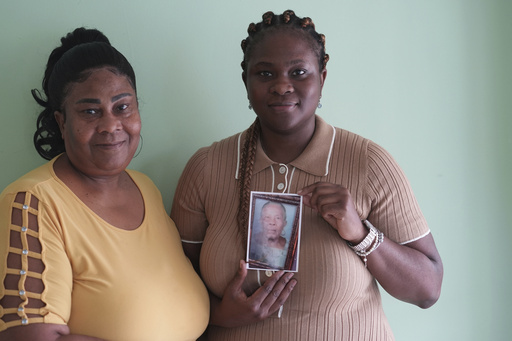
MIAMI — The arrival of refugees in the United States has surged to levels not witnessed in almost thirty years, thanks to support from nonprofits and community members across various political beliefs.
Over 160,000 individuals from all 50 states have stepped forward to assist newly arrived residents through the Welcome Corps, a collaborative initiative that began two years ago. Additionally, over 800,000 migrants from nations including Cuba, Haiti, Nicaragua, Venezuela, Ukraine, and Afghanistan have accessed support via a legal mechanism known as humanitarian parole. This influx came to an abrupt stop following President Donald Trump’s inauguration, marked by a sudden 90-day halt to the U.S. Refugee Admissions Program. This decision left many vetted refugees stranded and caused significant staffing reductions in nonprofits, leaving sponsors uncertain about the future of their new programs.
Rivly Breus, a crisis counselor based in a cheerful peach-colored house in South Florida, expresses her concerns. Having helped resettle over 30 individuals from Haiti, Ukraine, and Cuba, she wishes to guide these newcomers toward thriving rather than merely surviving. “We are in a situation of uncertainty because we cannot adequately respond to the questions our sponsees ask or instill the hope and encouragement they typically receive,” Breus shared.
In recent years, innovative sponsorship initiatives have expanded the capacity for resettlement in the U.S. Humanitarian parole has been utilized for 70 years by migrants lacking access to traditional immigration routes. The Biden administration broadened its scope for Ukrainians and introduced another program, CHNV, facilitating entry for up to 30,000 migrants monthly from Cuba, Haiti, Nicaragua, and Venezuela. This aimed to curb illegal border crossings by offering two-year work permits, though these did not provide a direct path to citizenship.
The U.S. nonprofit, Welcome.US, created a platform to connect sponsors with individuals on humanitarian parole safely. Starting in January 2023, the State Department empowered private sponsors to aid refugees in their adjustment process via the Welcome Corps, requiring groups of five or more to secure financial backing of at least $2,425 per refugee and commit to facilitating transportation, housing, education, and employment. Sponsors could either work with pre-approved applicants or specify particular refugees they wished to help.
“With private sponsorship, we can directly handle this without asking taxpayers or the government to foot the bill,” stated Ed Shapiro, a key supporter of the Welcome Corps. “We’re saying let citizens, religious groups, businesses, and universities take on this responsibility.” Since the program commenced in June 2023, over 9,000 sponsors have managed to assist more than 4,500 refugees, with private donors and platforms like GoFundMe.org stepping in to alleviate financial challenges.
The idea behind forming sponsor circles is to provide immediate social support and enhance newcomers’ integration into their new environments more effectively than government case workers could. “This initiative truly mobilized the community,” remarked Marissa Tirona, president of Grantmakers Concerned with Immigrants and Refugees, emphasizing the role of everyday people in fostering inclusive communities across America.
However, the Department of Homeland Security has raised concerns that earlier administrations misused humanitarian parole provisions. A spokesperson from the State Department indicated that Secretary of State Marco Rubio is prioritizing efficiency and consistency in all foreign assistance programs under the “America First” policy.
“Every expenditure, every policy, must answer these three questions: Does it enhance America’s safety? Strength? And prosperity?” Rubio stated.
Amidst this uncertainty, Breus remains active in her commitment to help newcomers. Balancing her responsibilities as a crisis counselor with her role at the Erzule Paul Foundation, an antipoverty nonprofit, she finds joy in organizing outings for new arrivals, such as a winter photo session with Santa Claus. She and her colleagues have established a “sponsor circle” and created an online profile for prospective migrants, detailing available resources to aid in their transition.
“We assist with the basics needed to help them find their footing,” Breus explained. She has utilized the Welcome.US platform to assist Ukrainians in resettlement as well, though she admits the current landscape feels unsettled.
One individual, known as Flor, has faced her share of challenges. Studying psychology in Haiti, she currently works part-time and takes English classes, all while hoping to reunite with her daughter still living in Haiti. “I feel like I’m failing her,” expressed Flor, only wanting her daughter to be able to join her. Her concerns grow as political conditions worsen, making the future increasingly uncertain.
Sponsors from various states like Utah and Pennsylvania are grappling with the rising unpredictability of their efforts. Many are advocating for legislative support to ensure that the initiatives they find so beneficial can continue while they navigate the new “case-by-case” requirements imposed on refugee arrivals.
Seventy-two-year-old Clydie Wakefield traveled to D.C. in hopes that her representatives would assist her. Although she identifies as a conservative, she began sponsoring an Afghan family as part of her faith’s calling to provide comfort to those in distress. After numerous preparations for their arrival, including sourcing necessities, she was disheartened when an executive order abruptly delayed their plans.
“We were just about ready to welcome them, and then everything changed. But I remain hopeful,” she stated.
Chuck Pugh, aged 78, experiences increasing pressure to assist an Afghan family—parents and five children—who have been navigating the lengthy process of securing entry into the Philadelphia area. Having assembled a diverse Welcome Corps group last July, he remains committed to ensuring their safe arrival and has the necessary funds for their expenses once they get here. He laments the delays but keeps hope alive, expressing a wish to welcome the family warmly at the airport when the time comes.
“It would be such a joyous occasion,” Pugh shared.

